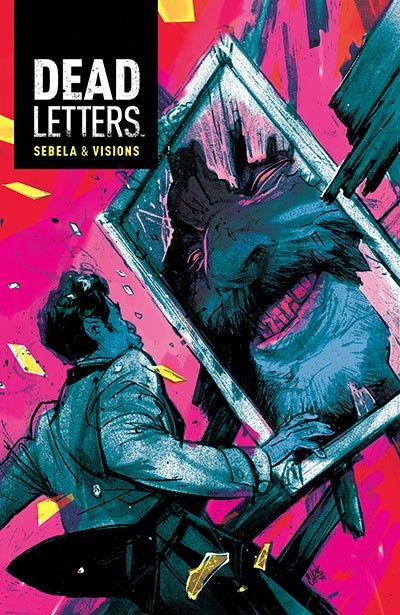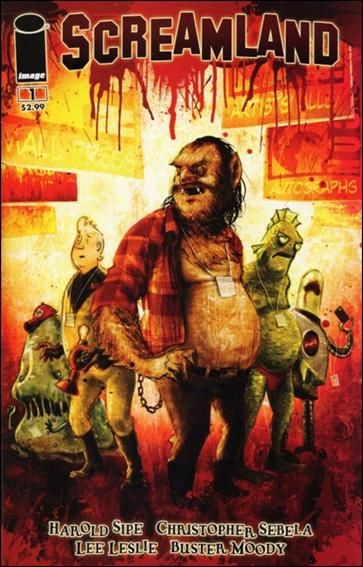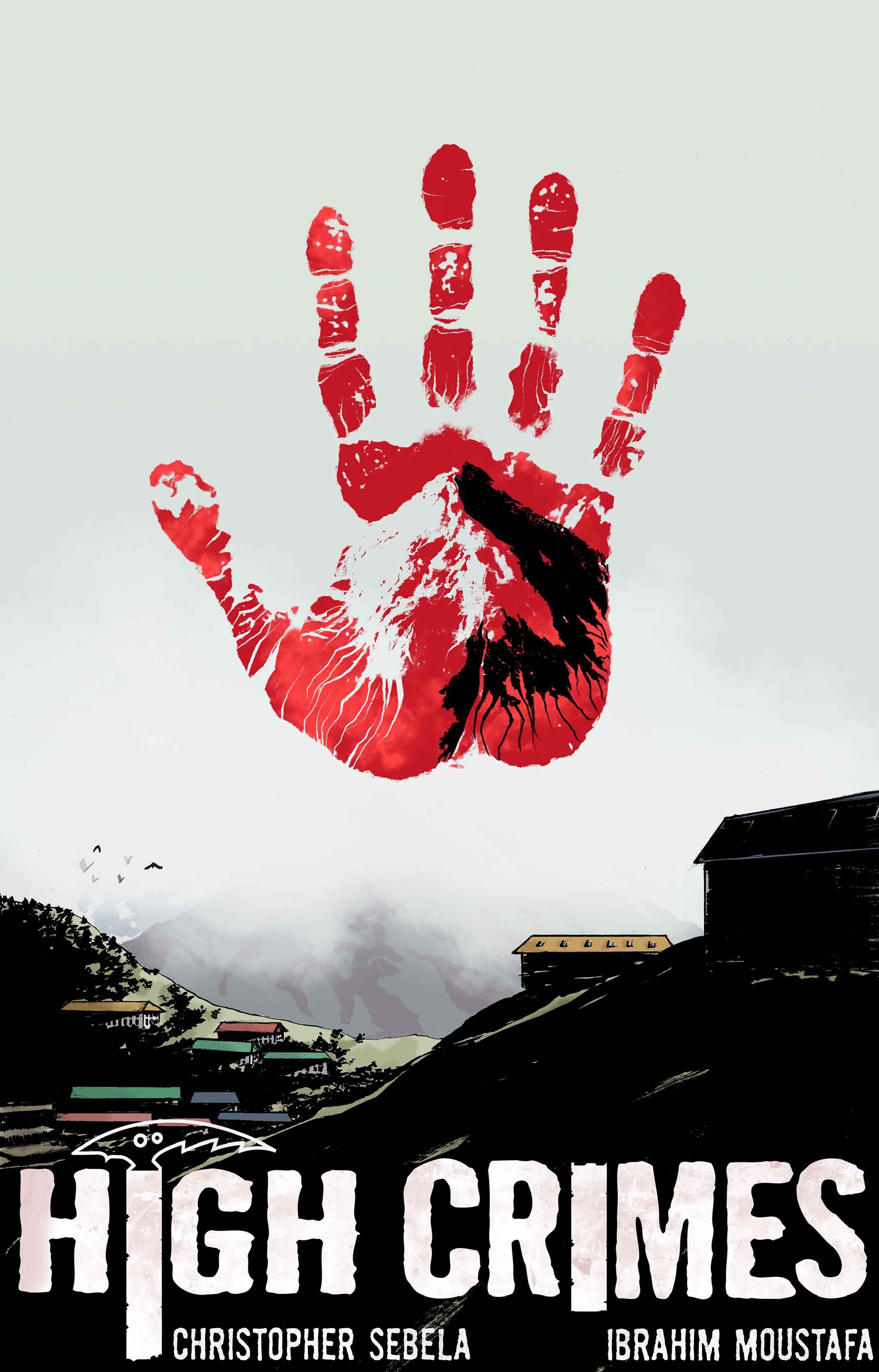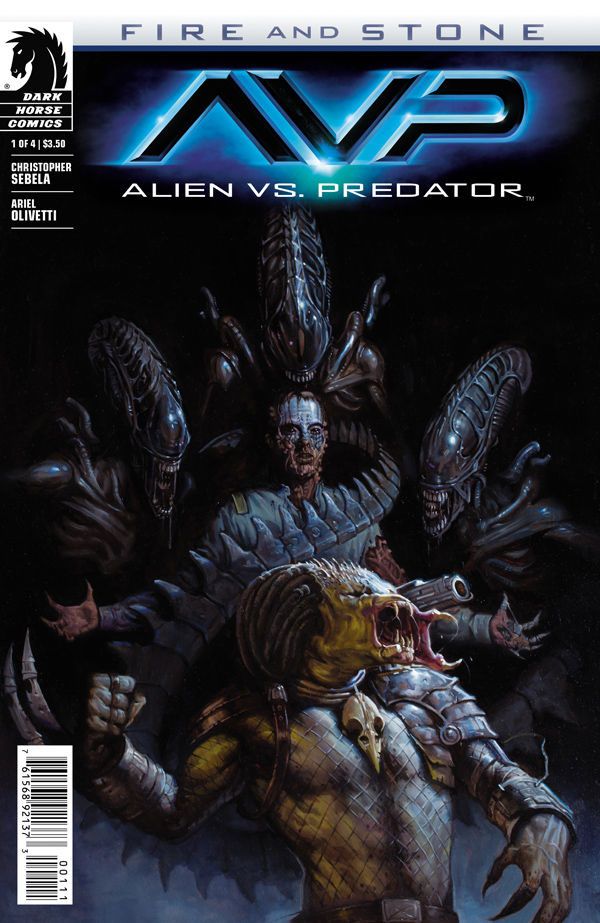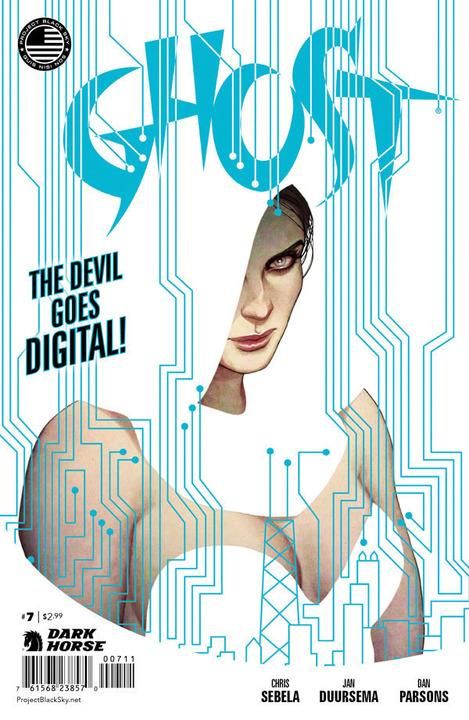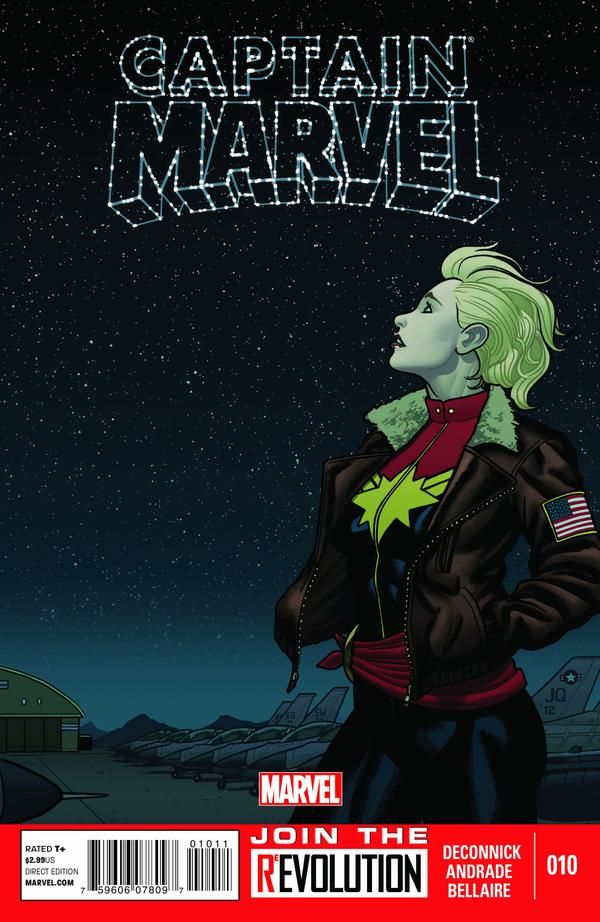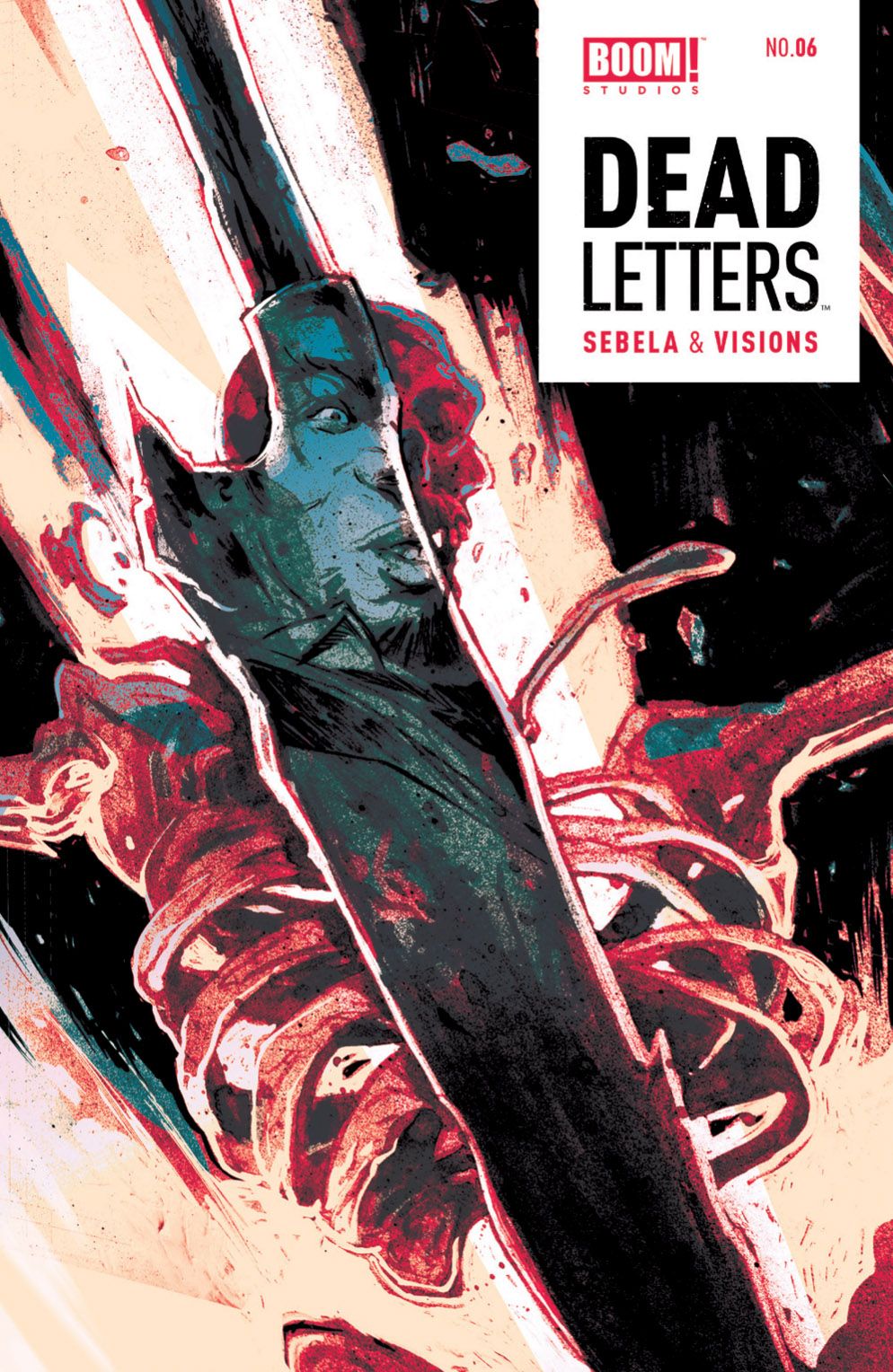The best way to learn how to make comics is to simply make comics, and writer Christopher Sebela found his way in by coloring and lettering.
He's the first to admit he wasn't the best, but it helped him to learn the industry while he continued to hone his writing skills. After years of work, and a couple of lucky breaks, Sebela is beginning to make a name for himself as a writer of diverse titles like Ghost, Escape From New York, Aliens vs. Predator: Fire & Stone and his own Dead Letters and High Crimes.
I spoke with Sebela about his entrance into comics, his beginnings as a color flatter, and his various projects. Along the way, he told me how the ability to hide a dead body gave him one of his biggest breaks in his career, and about his dueling passion and fear of Mount Everest.
Chris Arrant: You’ve been around the industry for a while now, but your first credited work was coloring The Tooth at Oni in 2011. How would you describe your relationship to comics before that?
Christopher Sebela: I've been reading comics since I was a kid, but it's been a strange love/hate affair for most of it. I would get super-obsessive into them, and then a few years later I'd draw back, sell off my collection and leave it behind for a few years. Then repeat as necessary. Around 1999, I was fully back into them and I started haunting the Warren Ellis Forum and writing for the long-defunct Savant and Artbomb doing reviews and other comics-type writing. It never even occurred to me I could write the actual comics for a living until people I knew started to do it, but even then I was largely focused on writing other stuff like journalism and long-form prose. I didn't really approach writing comics in any serious way until 2010, when I moved cross country to Portland and decided "OK, this is what I'm going to try to do." That took a while, and all my freelance design stuff was drying up due to the economy, so I took on gigs like lettering and flatting, working in the background of comics while I was pitching and writing and hoping. When I lettered The Tooth, we had the first issue of Screamland in the can and I'd sold two other books, so I felt like I was on the right path.
Can you say who you did flatting work for?
I did most of my work for Dan Jackson, a Portland-based colorist who does a lot of work with Dark Horse. Weirdly, we've been working together again, as he's been coloring Ghost since I took over the book. I worked on a bunch of stuff for Jordie Bellaire (including two issues of Manhattan Projects) for several months and she only had to call me on Skype once to very nicely tell me all the ways I was screwing stuff up.
I've done a lot of odds and ends, I flatted Sex Criminals #2, which stands as maybe my most rewarding flatting job because my name is in the credits, which is super-rare for a flatter. I signed a few copies of the book at HeroesCon this past summer, even though most people have no idea what a flatter is. There are lots of random people I flatted a page or three here and there for. I got to flat a Tony Moore American Vampire cover once; that was pretty exciting. I've also flatted all of Screamland and about 95 percent of High Crimes thus far, but I'm hoping that will be my last time flatting ever again.
Getting back on the path and your entrance to comics writing, what was it that flipped your switch to do comics writing -- simply moving to Portland, and all the comics creators there?
I somehow squeaked through the first wave of the economy hitting the toilet in 2008 as a freelancer. But in 2009 it caught up with me in a big way and I was down to one client, one steady bit of work, but even that was starting to drop from "as much as you can handle" to a more measured amount, so I saw the writing on the wall. I knew once they were gone, I wasn't really good enough to go out there and get clients on the strength of my portfolio (mostly because I didn't have one). Writing was the only thing I've ever done that I was really confident I could do for the rest of my life and do it well.
So, on that premise, if I was going to starve, I'd rather starve in pursuit of doing something I love instead of doing something I had to really struggle to make work. Or getting a "real job," which, considering how many times I've been fired in my life, was gonna be slim pickings. So I'd gotten an offer to crash with friends if I wanted to move out to Portland and I'd gotten tired of summer and winter in the Midwest and everything else, so I decided to move to Portland to write comics. To finally commit. I'd always danced around them. My story in Dark Horse Presents this year with Brian Churilla, that was the first script I ever wrote back in 2003. I knew I could do it, and I knew that writing novels was fun for me but I had a problem keeping momentum up. Comics is shorter, more kinetic, you have to write not just one thing but five or 12 parts of that thing, so finishing is the name of the game. I've written more in the last four years than I probably have in my whole life.
At what point did you find your footing as a writer and have that be your main job? Or is it, even now?
October of last year was the first time I actually turned down production work. I'd been largely making my living from flatting comics since 2010, outside of the random writing check I'd pick up here and there. By October I had enough writing gigs that were finally starting up that I had to tell the colorist who was my main client that I couldn't do any more flatting work. Which was hard, 'cause I've been freelancing for eight years, and saying no to anything is anathema. I had one last lettering gig to take care of before the year was up. By January of this year everything was strictly writing, so I'd say that's when I mark my anniversary calendar for being a full-time writer.
Do you think doing other jobs in comics besides writing helps you as a writer fo comics?
I definitely do. I've said it before but I think every writer who writes a page where each panel has more than three characters in it should be forced to flat one of those pages to realize just how much work that is for the artist and the colorist. I've done it several times where I just curse myself for loading the pages up with people. Not that it makes me write any differently, but I feel more in touch with the pain it brings. Lettering is also really useful as a writer, when you have to go in and lay out these walls of text you dash off in your script, it definitely keeps you mindful to try to say more with less next time. Plus you can edit on the fly. The difference between what you have in mind in your script and what the final pages look like can be night and day and usually for the better, so you see something in there and it inspires you to rewrite an exchange or take a different approach. All of it is useful on creator-owned books because, by and large, those are a labor of love, and if you're laboring right alongside everyone else by turning in flatted pages to the colorist or sending a first draft of the letters to everyone, your commitment doesn't end when the script is wrapped, you're heavily involved all the way to the moment it leaves your collective hands.
Prior to comics you were a designer, and you continued to do design in your own work – especially in High Crimes. Others, like Brian Wood, Antony Johnston and Jonathan Hickman, have done that, but what’s it like for you to have that control over your work?
It's great, though sometimes I feel like my reach exceeds my grasp. My design skills aren't amazingly strong, but my ability to fake it is top-notch. I can't really draw, which is a huge deficit, but I can rearrange stuff; I can slap things together and figure out something worthwhile inside that mess most times. My hard drive is full of half-attempts that never went anywhere, but I'm blessed with a sense of dumb perseverance. Because I can't draw or color and I've been lucky enough to work with artists like Ibrahim Moustafa and Chris Visions, my visual input is limited on a book. Doing design stuff helps, I dunno, dial me into the look of things without getting in an artist's way. And every bit of that stuff helps when we're doing a run up to an issue of High Crimes, having these visual teases that don't spoil anything in the actual issue but give you an idea of what we're all about, plus it makes me feel more useful than just writing a script. It's a whole other way of thinking and, ironically, now that it's not my job, it's become kind of my shut off valve after I can't write anymore but I can't turn my brain off yet.
Speaking of High Crimes, that's arguably your signature work thus far. It’s about Mount Everest. Have you ever had the inclination to climb it yourself? What attracted you to that mountain in the first place?
I've had the inclination in the same way that people say they'd love to go into outer space. They're cool dreams on paper, but to actually do them is so grueling and so full of awful reality that it would be a horror show compared to the dream. What I'd like to do some day is make the trek to base camp and then just turn around and go back to Kathmandu. I think I could handle that. But the climb itself, everything about it is telling you to STOP DOING THIS.
And that's what attracted me to Everest, the fact that everything about it, from how expensive it is to get on an expedition to how life-threatening it is the whole way up is so prohibitive and yet hundreds of people flock to it every year to try and summit it. People die over it. It feels like one of the clearest examples of how people do things they really shouldn't be doing, but either through faith or delusion or some mixture of the two, they do it anyway.
Jon Krakauer's Into Thin Air was my gateway drug into Everest. I've read it at least eight or nine times by now, and I'd get into a thing where once a year I'd read it and then fall down the rabbit hole of watching documentaries, reading other books on Everest. I feel like I've read or seen it all. I only have one left, Into the Silence. It's Wade Davis' 700-page book about George Mallory's failed attempt to summit and how World War I sort of set the stage for all this. I'm saving that for when I finish writing High Crimes, because that's my idea of a reward.
So what kind of hurdle would it take to put the reward of visiting the base camp of Mount Everest? A movie deal or something?
Something involving a lot of money, yes. Because even on the journey to base camp, you're going to suffer. The plane ride from Kathmandu to Lukla, which is this teeny-tiny airstrip in the Himalayas, is scary enough, but then you have to hike several miles, sometimes way way up these steep grades and switchbacks and not all the teahouses along the way are the best places to stay. I'm pretty attached to creature comforts like heat generated by gas or electricity and not by burning yak dung. The highest I've climbed is most of the way up Multnomah Falls. Also I'm scared of heights. So yeah, lots and lots of money.
You’ve also fell into some enviable assignments on licensed books like Aliens vs. Predator and the upcoming Escape from New York. CBR has interviewed you about those individually, but what’s that type of work like for you where you’re writing something that might’ve been part of your childhood but forcing yourself to approach it as a professional writer?
I'll start out by saying that it is insanely fun to be working on both. Neither of these books ever popped up on my vision board of what the future could hold. Part of it is tough because the first thing that popped into my mind when I started working on both books was "Don't screw this up." And then you have to figure out what "screwing it up" actually means, and this becomes a mental fractal that, if you chase it, you'll get lost for days or weeks. Everyone loves these things for different reasons, so you have to kind of close your eyes and rush in wildly.
Ultimately, I want to tell good stories, that's my mindset when I start writing out notes. It adds a level of complication that these stories are about things I've loved all my life, but the challenge of both of these books is what drew me to them too. I don't want to live in my own little box, I want to freak out and worry sometimes and laugh like an idiot when I come up with an amazing idea
Plus there's the whole surreal level of me being the "Fire & Stone" writer's room with Randy Stradley, who wrote the original Alien vs. Predator crossover ever. Comics I remember reading as a kid. Or getting notes from John Carpenter, who might as well be my dad for all the effect he had on me growing up. Occasionally I think I might be dreaming all this.
Your main regular assignment right now is writing Dark Horse’s Ghost series. That’s a character who was on the fence – well-known enough to be brought back, but not so well-known that you couldn’t alter the approach of the book. You and I have talked about Ghost before, but I want to dig more info the fact that it’s based in Chicago – a town you lived in for a number of years, even going to a prestigious private university there. What’s that like working in a town you know so well, but also one you left? And can you say why you left?
I don't think she'll mind me telling this story, but when Kelly Sue [DeConnic] was working on Ghost #0, she had a scene that required the characters to bury a body somewhere where it wouldn't be found. She'd sent out an email to a couple people from Chicago she knew, including me, asking if we knew of such a place. I think within a few minutes or so I knew the place, a fenced in wildlife preserve in the middle of Waveland Park, off-limits to the public and full of dense growth and swampy-looking water. I remember staring at it through the chain-link fence as a kid and thinking that stuff was quicksand. So it was an immediate connection for me.
It's really helpful, having that innate knowledge of the city's layout, of which L train goes where, down to oddly specific stuff like a fire escape in a gap between buildings on Michigan Avenue. It's like paying attention and noticing all that stuff while I was there was all for something,, y'know? The city is a lot different from when I left it in 2000, a lot of it not for the better, but things like Svengoolie, the local horror host, or the ominous network of roads beneath the streets downtown, those don't change, and they've been great fodder for making this book feel a little more real.
As for why I left, I'm what's known as a locationist. I inherited it from my dad. The belief that if you move somewhere new, then you are a new person, you can change yourself, because you're not surrounded by all the same familiar things and people. Sometimes you exhaust a city, or you get stuck on some notion about how you don't want to die in the town you grew up in, and it was a little of both for me. I wanted to dramatically change my life and a lot of times, the easiest way to do that is quit everything, pull up stakes, and hope for the best.
So, have you been in Portland long enough yet to know where to bury a body?
Yeah, definitely. The summer of 2010, when I was still just flatting exclusively, I got a job as a census taker, which took me all over the city. It was kind of the best job possible because I got paid to wander the city and talk to strangers, and I definitely wound up in some iffy neighborhoods and drove past some pretty dense forest preserves, enough to know a few spots where I'd go if I had to. But I'm about at my five year anniversary and Portland is ever-unfolding, so I'm hopeful that I'll have a whole index of possible spots in another five.
In your career so far you’ve done some big books when co-writing with others – with Matt Fraction on Fantastic Four and with Kelly Sue DeConnick on Captain Marvel and Ghost. What’s that process like for you, being asked to co-write (or in some cases) finish the work of longtime friends in these high-profile books?
Both of those books were intimidating on a lot of levels. Both because Matt and Kelly Sue are crazy-talented, and I'm mildly neurotic on my best day, so putting my talent up alongside theirs is enough to make you want to dig a hole and crawl inside it. Both of them were in spots where they had other projects starting up and schedules were getting tight, so they needed to bring someone in to help out, and I was lucky enough to be around and available.
With Captain Marvel, the Carol Corps was really up to full speed by then and it's so much Kelly Sue's book that I mostly wanted to be sure to not get in the way, not mess with what makes that book so great. It was a lot of fun though, going through the complicated histories of Carol and Monica Rambeau and finding stuff about their pasts that we could bring back and riff on, to make things richer. Or helping in the lead-up to the "Enemy Within" crossover, that was a whole different way of working, like juggling while writing.
Fantastic Four was fun because it was a "here's a crazy idea I have" "let's do this crazy idea" sort of thing and we just went for it. I got to write Ben Grimm dialogue, which is so fun I could do it all day. I got to write "IT'S CLOBBERIN' TIME" in a script and get paid for it, I can't think of a better job. Matt did shoot down my suggestion of putting a truckasaurus in there, but you can't have everything, I guess.
So right now you’ve got two creator-owned series (High Crimes and Dead Letters) and three company/licensed books (Aliens vs. Predator, Escape from New York and Ghost). Is that a pretty full load, or is there more you’re working on or want to work on?
I've got at least six or seven more books that are greenlit and in some stage of progress. Some are work for hire, most of them are creator-owned books. Most of them haven't been announced so I can't talk about them in any detail, but I'm excited about all of them. Currently I'm working on new creator-owned pitches with some collaborators and getting ready to send those out into the world. I'm still at that spot where I find it almost impossible to turn down work, but there's something way more satisfying to loading your schedule with more stories you get to tell than pulling all-nighters flatting line art, so my mania has at least become more fulfilling.
I know being a freelancer is about hustling for work, but do you ever worry you might be pitching more than you could actually tackle if, say, all of those are bought by publishers?
No, because some of them I've pitched and gotten greenlit and we're on schedule for me to start turning in outlines and scripts and some of them are still in the kicking ideas around phase and some are in the "getting the pitch package together" phase and some are in the art phase. I definitely don't want to hit a point where I have too many books and too many deadlines and something suffers because of it, but I like having multiple projects in multiple stages.
A lot of comics is a waiting game. Two of the first three books I ever sold still haven't come out yet, and I spent a lot of my first few years in comics swearing I had these books coming out anytime now and nothing to show and that was instrumental in how I approach stuff now because I know that can happen with anything. Everyone's got their own schedules, the trick is making yours and theirs mesh up.
If by some miracle everything I want to do got picked up all at once and they wanted to start tomorrow, then I might freak out, but that's probably not going to happen, so I want to keep exploring new publishers, new ideas, new everything. The best part of the job is that it's never the same day twice if you don't want it to be. And I don't want it to be.


